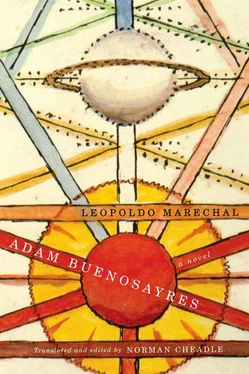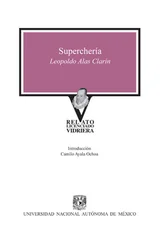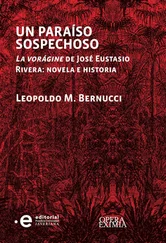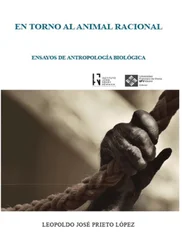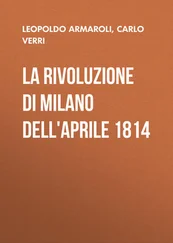But whoa there, reader! Hold your horses, rein in your lyricism, come down from the lofty heights into which my sublime style has launched you. Descend with me to the neighbourhood of Villa Crespo, in front of number 303 Monte Egmont Street. There’s Irma, vigorously sweeping the sidewalk and wailing the first lines of “El Pañuelito.” She stops short and leans on her broom, dishevelled and hot, an eighteen-year-old witch. Her sharp ears tune in the sounds of the city in a single chord: the Italian construction workers’ song, the hammering from the garage named La Joven Cataluña, 6the caterwauling of fat women arguing with the vegetable grocer Alí, the grandiloquence of Jewish blanket vendors, the clamour of boys tearing around after a ragball. 7Then, confirmed in her exalted morning mood, she takes up her song once more:
It was for you,
but you’ve forgotten it.
Soaked in tears,
I have it with me. 8
Adam Buenosayres awoke as though returning. Irma’s song hooked him out of deep sleep, pulling him up through fragmented scenes and evanescent ghosts. But after a moment the thread of the music broke off, and Adam fell back down into the depths, surrendering to the delicious dissolution of death. Local deities of Villa Crespo, my tough and happy fellow citizens! Old harpies writhing like gargoyles for no reason at all; tough guys crooning tangos or whistling rancheras ; demon kids flying the team colours of River Plate or the Boca Juniors; 9bellicose coachmen twisting on their padded seats as they hummed a tune northward, hurled a curse southward, shouted catcalls to the east and threats to the west! But above all, you, my neighbourhood girls, duets of tapping heels and laughter, suburban muses with or without the rasping voice of Carriego the poet! 10Surely if the girls had climbed the stairs to number 303 and looked in on Adam Buenosayres’s room, our hero’s presence would have moved them to generous silence. Especially had they known that, with his back turned against the new day, defector from the violent city, fugitive from the light, he forgot himself in sleep and in forgetfulness cured his pains — for our protagonist is already fatally wounded, and his agony will be the subtle thread running through the episodes of my novel. Unfortunately, Monte Egmont Street knew nothing of this. And Irma, who wouldn’t have scrupled to rouse Ulysses himself as long as she could sing, launched into the second verse with verve:
A bird sang a sad song,
my sweet darling,
when you left me. 11
His head tossing and turning on the pillow, Adam Buenosayres’s figure traced a vast gesture of denial. Against his will he was surfacing again, uprooting himself from the phantasmagorical universe that surrounded and hemmed him in. Smoky faces, silent voices, and vague hand gestures faded away below. One face, his grandfather Sebastián’s, was still calling out to him, but it dissolved like the others, in zones of stupor, in delicious depths. Adam hit the rock-bottom certainty of this world and said aloud:
— Too bad!
He half opened his eyes; through the lashes he sensed the darkness thinning, an inchoate clarity, a hint of light filtering through the dense curtain. Before Adam’s eyes, in the illegible chaos filling the room, colours started gathering and pushing each other aside, and lines began to attract or repel one another. Each object sought its sign 12and materialized after a quick, silent war. As on its first day, the world sprang forth from love and hate (Hail, old Empedocles! 13), and the world was a rose, a pomegranate, a pipe, a book. Caught between the call of sleep still tugging at his flesh and the claims of the world already stuttering its first names, Adam looked askance at the three pomegranates on the clay plate, the wilted rose in the wineglass, and the half-dozen pipes lying on his work table. I’m the pomegranate! I’m the pipe! I’m the rose! they seemed to shout, proudly declaiming their differences. And therein lay their guilt (Hail, old Anaximander! 14): they had broken with what primordially was undifferentiated; they had deserted the blissful Unity.
Adam felt a bitter taste on his tongue — not just the fleshy one, but on the mother tongue of his soul as well — as he watched the parodic genesis unfold in his room. Like a god in the mood for cataclysms, Adam shut his eyes again, and the universe of his room returned to nothingness. “Blast it all, anyway!” he grumbled, imagining the dissolution of the rose, the annihilation of the pomegranate, the atomic explosion of the pipe. Perhaps on merely closing his eyes, the city outside as well had vanished. And the mountains would have faded away, the oceans evaporated, the stars fallen like figs from a tree shaken by its maker… “Hell’s bells!” said Adam to himself. Alarmed, he opened his eyes, and the world put itself back together with the meticulous exactitude of a jigsaw puzzle. He would have to give up his midnight readings of the Book of Revelation! Its terrible images of destruction kept him wide awake, then dogged him in dreams, and left him the next morning with an obscure sense of foreboding. Now more than ever, he needed to keep a weather eye on what was happening in his soul, ever since the drums of the penitential night had beaten for him. It wouldn’t do to succumb to a childish dread of geneses and catastrophes. The truth was that when his eyes were closed (and Adam shut them once again), the rose, for example, was not obliterated at all. On the contrary, the flower lived on within his mind, which was now thinking it; and it lived a lasting existence, free of the corruption tainting the rose outside. For the rose being thought was not this or that rose, but all roses that had ever been and could be in this world: the flower bound by its abstract number, the rose emancipated from autumn and death. Thus if he, Adam Buenosayres, were eternal, so too the rose in his mind, even if all the roses out there were abruptly to perish and never bloom again. “Blessèd is the rose!” Adam said to himself. To live, as the rose, eternally in another, and for the eternity of the Other!
Adam Buenosayres opened his eyes for good. When things insisted on their irrevocable sign, he dejectedly saluted: “Good morning, planet Earth!” He wasn’t yet ready to break the stillness of his supine body; it would have been a concession to the new day, which he resisted with all the weight of his dead will. But from Monte Egmont Street the new day reminded him again of its dominion: “Goal! Goal!” howled ten children’s voices in victory. “Foul! Foul!” roared ten others in protest. The clash of quick battle was heard, then peace being negotiated among insults and laughter, then kids tearing around again as they resumed their game. Afterward, when the uproar of the dust-up had settled down to the level of the ambient street noise, Adam picked out the acrid voice of his landlady, Doña Francisca, cackling reproaches, growling offers, belching disdain as she beleaguered the grocer Alí. “Two hundred pounds of belligerent fat,” thought Adam, recalling her mountainous udders. He imagined the ecstatic figure of Alí standing by his vegetable cart and listening without hearing, absorbed instead by some memory of patient oriental markets.
A repeat of yesterday, Adam was thinking. And tomorrow it will be the same scene all over again. It chilled him to think of this flightless reality that endlessly returned, day in day out, inevitable and monotonous as the ticking of a clock. He turned over in bed, and melancholy springs moaned deep in its guts. “The day is like a trained bird,” reflected Adam. “It comes into the world every twelve hours, at the same spot on the globe, and bores us with its eternal song and dance. Or it’s like a pedantic schoolmaster with his sun hat and his primer of stale knowledge — This is the rose, this is the pomegranate .” With a start, he remembered that he too was a teacher. Thirty-two pairs of listless eyes would soon be peering at him from behind their desks. “Shall I go to school?” he asked in his soul. He recalled the damp building, the principal’s saturnine face, and decadent countenances of the pedagogues, and Adam resolved in his soul: “I won’t go to school!” This is the rose , he then mused. No! The rose was Solveig Amundsen, 15no matter what the day said. The memory returned of that last afternoon in the big, rambling house in Saavedra. That empty hopeless feeling and the sting of humiliation were mellowing into something like nostalgia for a cherished impossibility. In Solveig Amundsen’s garden, already wilting with autumn, Lucio Negri (the quack doctor!) had stood before the earnest young girls and fervently preached “mental hygiene,” deeming it all the more desirable in “the Amundsen madhouse,” as the place was quite reasonably dubbed. No doubt about it, Lucio Negri had taken advantage of the chance absence of the four brightest lights of the tertulia — the astrologer Schultz, Franky Amundsen, Samuel Tesler, and the pipsqueak Bernini — who hadn’t showed up that day. Lucio had chosen his moment deliberately, of course. Solveig was present among the girls, and Adam was sitting beside her in his role as poet without apparent prospects. At Adam’s rejoinder, that charlatan of a doctor reproached the poet by quoting Adam’s own verses:
Читать дальше
